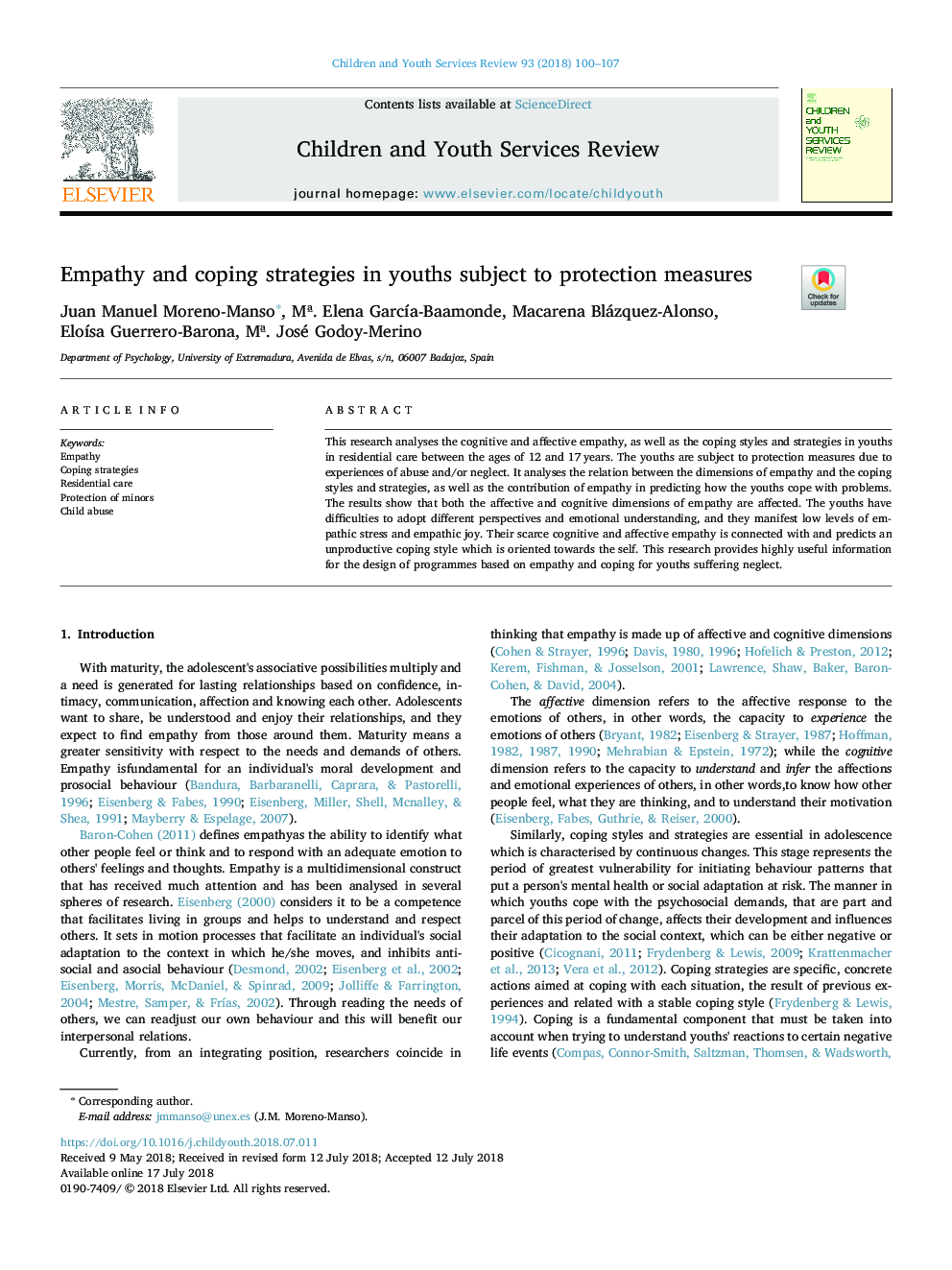| Article ID | Journal | Published Year | Pages | File Type |
|---|---|---|---|---|
| 6832784 | Children and Youth Services Review | 2018 | 8 Pages |
Abstract
This research analyses the cognitive and affective empathy, as well as the coping styles and strategies in youths in residential care between the ages of 12 and 17â¯years. The youths are subject to protection measures due to experiences of abuse and/or neglect. It analyses the relation between the dimensions of empathy and the coping styles and strategies, as well as the contribution of empathy in predicting how the youths cope with problems. The results show that both the affective and cognitive dimensions of empathy are affected. The youths have difficulties to adopt different perspectives and emotional understanding, and they manifest low levels of empathic stress and empathic joy. Their scarce cognitive and affective empathy is connected with and predicts an unproductive coping style which is oriented towards the self. This research provides highly useful information for the design of programmes based on empathy and coping for youths suffering neglect.
Related Topics
Health Sciences
Medicine and Dentistry
Perinatology, Pediatrics and Child Health
Authors
Juan Manuel Moreno-Manso, Mª. Elena GarcÃa-Baamonde, Macarena Blázquez-Alonso, EloÃsa Guerrero-Barona, Mª. José Godoy-Merino,
